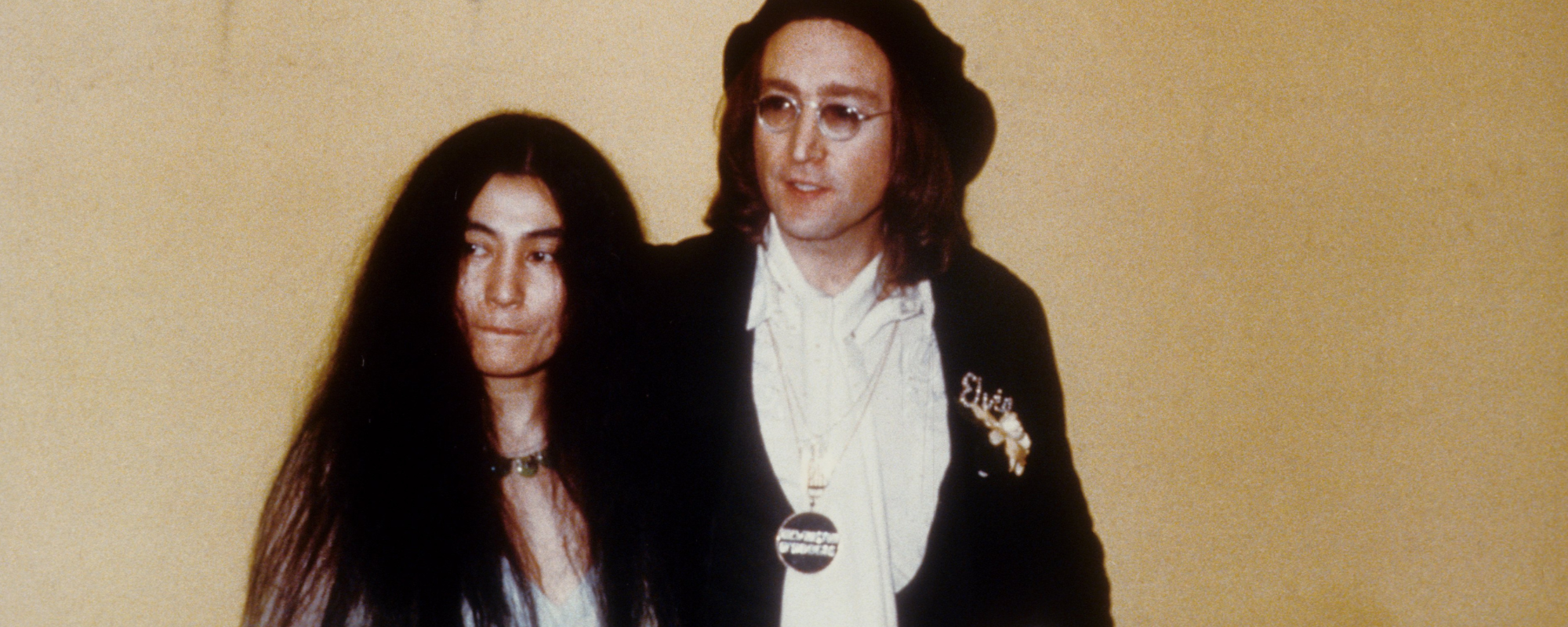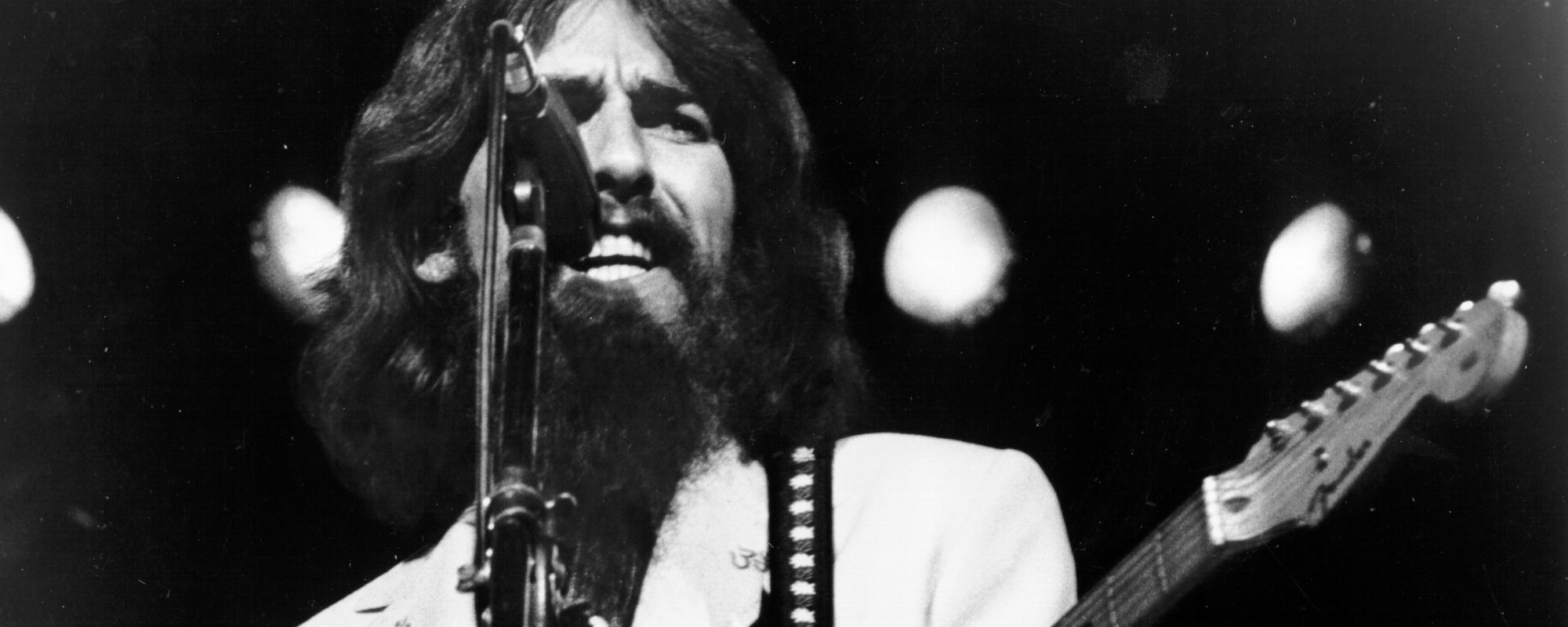Aerosmith’s Peace Out Farewell Tour resumes in September and runs through February 26, 2025, with a final show in Buffalo, N.Y.
Videos by American Songwriter
Steven Tyler, Joe Perry, Brad Whitford, Tom Hamilton, and Joey Kramer released their self-titled debut 51 years ago. The album featured “Dream On,” a classic rock ballad and radio staple. If “Stairway to Heaven” had been written in Boston, it would’ve sounded like “Dream On.”
Tyler and Perry are Aerosmith’s version of a Plant and Page or Jagger and Richards rock legend duo. Together, they are responsible for reshaping American rock and roll. (You don’t get to Guns N’ Roses without Aerosmith.)
But Perry also has his Ronnie Wood in Brad Whitford, a more than capable lead guitarist who complements the band with his Berklee training. Perry told Guitar World: “In my mind, we could be like The Yardbirds in those rare times when you had Jimmy Page and Jeff Beck together. That’s what we wanted Aerosmith to be.”
Asked how he developed his signature sound, Perry recalled growing up without many musicians around. “I really didn’t have a lot of guitar players around me growing up. I didn’t grow up in a musical family, and I didn’t come from a town with all these hot guitar players.” As an example of figuring things out alone, Perry learned to play right-handed though he’s left-handed.
While you prepare for the band’s final lap, here are a few of Joe Perry’s iconic guitar moments with Aerosmith.
“Cryin’” from Get a Grip (1993)
On Get a Grip, Perry returned to the cleaner sounds of the 1970s. “Cryin’” is a classic country ballad run through the lens of a Boston rock and roll band on British blues. The guitarist burns a solo that’s more Jimmy Page than Glen Campbell. Though the lead playing is impressive, Perry, like Page, is well-known for his rhythm work. You can hear his influence on Slash with his epic guitar solos and winding riffs. (“Sweet Child O’ Mine” could easily be turned into a country song too.)
“Love in an Elevator” from Pump (1989)
Aerosmith successfully navigated life in the 1980s, and “Love in an Elevator” was a hit on MTV and radio, though a longish jam by glam metal standards. The song is a kind of blues rock suite with layered riffs and guitar solos traded between Brad Whitford and Perry. The groove is swinging and heavy and funky—all the things one wants from an Aerosmith track. Also, the song’s breakdown features some of Perry’s finest playing. A lot of guitar tones suffered during the glam metal era, but Perry and Whitford continued to sound great amidst the bushy hair and tight spandex on MTV.
“Milk Cow Blues” from Draw the Line (1977)
Aerosmith based their version of “Milk Cow Blues” on a rare live recording by The Kinks. Perry and bassist Tom Hamilton first heard The Kinks’ version (written by Kokomo Arnold) when they previously played together in a garage band. A bandmate had an older brother in college who’d come home “with a bunch of great records, like Chuck Berry, Muddy Waters, and Howlin’ Wolf,” said Perry. He recorded the track with an inexpensive Danelectro guitar, similar to the one used by Jimmy Page.
“Back in the Saddle” from Rocks (1976)
On “Back in the Saddle,” Perry played a Fender Bass VI, which gave the snarling riff a deeper register than a traditional guitar. Whitford played lead over Perry’s weighty riff, influencing everyone from Guns N’ Roses to Metallica. A signature of Perry’s style is how clean and articulate his guitar sounds even while recording something so heavy. He said he always preferred a cleaner approach. He wanted to hear the instrument’s tone and distinguish individual notes of a chord like on a Beatles record.
“Walk This Way” from Toys in the Attic (1975)
Perry recalled writing the riff for “Walk This Way” on his Fender Stratocaster during an Aerosmith soundcheck in Hawaii. Referencing The Meters and James Brown, he asked drummer Joey Kramer to play a beat reminiscent of those artists. Tyler added the lyrics when Aerosmith began sessions for Toys in the Attic in New York. Perry recorded the guitar solo with the same sunburst Stratocaster he used to write the riff. More than a decade later, Rick Rubin and Run-DMC helped revive Aerosmith’s career with their rap-rock hybrid of “Walk This Way.”
When you purchase through links on our site, we may earn an affiliate commission.
Photo by Christopher Polk/Getty Images for Clear Channel












Leave a Reply
Only members can comment. Become a member. Already a member? Log in.